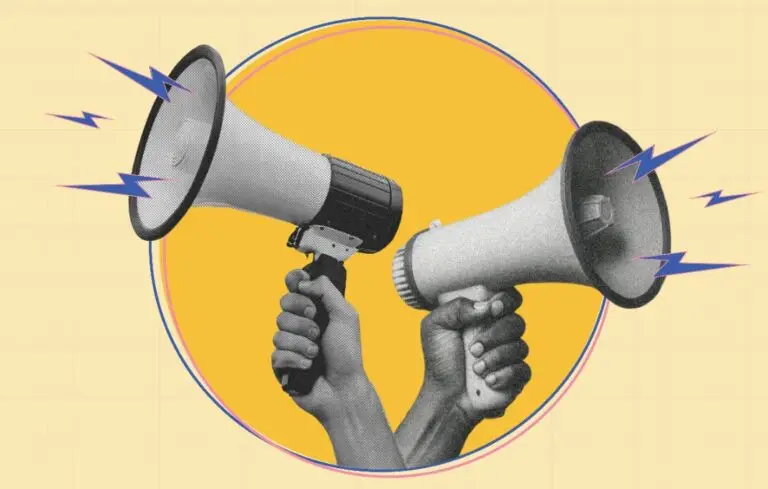 Through 90-plus days of sudden and catastrophic economic collapse, America’s CEOs have heroically focused on the most important, immediate questions forced upon them: “How can I keep my workers safe?” “What will be the impact of this on our sales and operations?” And maybe, “Will we survive?”
Through 90-plus days of sudden and catastrophic economic collapse, America’s CEOs have heroically focused on the most important, immediate questions forced upon them: “How can I keep my workers safe?” “What will be the impact of this on our sales and operations?” And maybe, “Will we survive?”
Now, CEOs crawling over the great Covid-19 chasm are turning to the bigger question: “What’s next?”
The good news, of course, is that we will get through this. We may not know where the other side is, but we do know there will be another side. “Nothing can stop America when you get right down to it,” Warren Buffett told shareholders in April. “I will bet on America the rest of my life.”
We agree—and so did every one of the more than 50 CEOs and other experts we talked to about how they’re coping with Covid—and what they think comes next.
How we get there remains the open question, though. Based on our conversations, CEOs have learned a lot about surviving a lockdown of the entire economy—not so much about what life looks like on the other side (though we goaded a few to take a stab at predictions—see below). “Where things are fundamentally going to change is that, historically, we haven’t felt that casual interaction with strangers was dangerous,” says Marc Jones, chairman and CEO of IoT provider Aeris. “Now it is. So behaviors and mindsets are going to change dramatically until or if we get back to where that no longer is dangerous.”
We found near-universal acknowledgement that there is no precedent for anything that’s happened so far and no playbook for what to do to promote a recovery. But there is a fair amount of faith that the most extreme views about the future will not come to pass. “Historically, when people say there will be a ‘new normal,’ changes have tended to be on the margins, and they’ve tended to accelerate trends as opposed to creating whole new norms,” says Marc Lautenbach, CEO of Pitney Bowes. “This could be different. But for the most part, the hit rate of prognosticators on how they think the world will profoundly change is wrong.”
Still, few CEOs profess to having any specific strategies for leading their companies through the intervening months if cases and deaths flare, as projected. What happens to companies if business continuity is repeatedly interrupted over the next several months or year? Good question. Many CEOs say they’re simply remaining flexible, talking to customers, taking things a day or a week at a time, trying to hang on to good people and making the most of technology to react quickly to endless curveballs. “Recovery in the short term is going to be uneven, unsettling and unpredictable,” says Jim Turner, CEO of Intelligent Fiber Network. “The only thing that is certain is that the fundamental change we already have experienced will continue to exist and likely become more erratic.”
Changing Workplaces, Changing Work
In the face of this, many CEOs talked enthusiastically about the success their companies have had in switching to remote work on an emergency basis and the long-term positive impact that will have on their companies. They see accelerating digital interactions and digital processing of work, as well as a move to a more flexible, adaptable workplace. “That was in our gameplan on January 1, before we even knew what Covid-19 was,” says John Schlifske, CEO of financial-services giant Northwestern Mutual. “This basically forced us to do it overnight. It’s kind of a catalyst—an unfortunate one because of the mayhem and mortality—for something that was bound to happen anyway.”
For white-collar workforces, the virus may permanently free up huge amounts of cash by reducing companies’ physical footprints. Companies spending millions of dollars expanding their digital infrastructure will need to earn a return on that by having less real estate and less travel, says Ravin Jesuthasan, managing director at the consulting company Willis Towers Watson. He predicts requiring a premium for people to meet in person. “The purpose of the workplace will only be for you to come and collaborate and innovate,” he says.
For manufacturing CEOs, like Emerson Electric’s David Farr, Covid-19 has already reshaped how production lines are set up at his industrial giant, perhaps for good. He expects “more automation, which means fewer people” employed in manufacturing overall. Given the worker shortages faced by most factories just a few months ago, this is only accelerating the inevitable. Greater spacing of employees, running three shifts instead of two and having different types of shifts all will be part of Emerson’s new normal. “That will run our costs higher,” he says.
Despite the changes, few CEOs we talked with say they’ve imagined a fully remote workforce—even in industries where that’s not an impossibility—as they figure out how to address the inevitable strains on corporate culture and start to wrestle with the legal implications of returning their workforces. “Humans crave the need to interact,” says Bob Sibik, co-founder of Fusion Risk Management, and “prefer to experience things physically rather than virtually.” CEOs will have to figure out the balance, he says.
Brave New World
Meanwhile, most CEOs have remained largely quiet while government actions—at both the state and federal level—created winners and losers, with disorganized efforts at backstopping business, haphazard designations of essential and non-essential companies and tight controls on when certain types of companies and industries can “reopen.”
Even chiefs of industries fortunate enough to be favored by government handling of the economy or who are conducting affairs largely unaffected by the damage of Covid-19 don’t know exactly how their relative prosperity could be endangered by a “fat U-” or L-shaped recovery.
“A lot of this will be driven by health,” says board consultant Harry Broadman. “If in six months we find out that the coronavirus is going to mutate every year and we’re going to have to worry about this every year, then it’s a very different scenario than a once-in-a-lifetime change.”
Globally, some CEOs appear to be betting on a return to the status quo. Heads of multinational corporations, with complex supply chains consisting of highly integrated nodes around the world, insist that globalism is just too ensconced to be reversed, so they don’t see that happening.
“The genie is out of the bottle,” Pitney Bowes’ Lautenbach says. “Those trends are unstoppable. But China in particular is a very open question. They’ll continue to be a major player, but people will think about China in a different way when they’re making supply-chain decisions.”
Will American public opinion on China shift to the sort of Cold War loathing once reserved for the Soviet Union? Or will the need for cheap goods win out in an era of painfully high unemployment and diminished economic prospects? Already, some CEOs we talked with are trying to figure out how to decouple from Chinese sources.
Big, Big Government
Perhaps the only thing CEOs do know for sure is that the U.S. and other nations will be coping with debt loads that may change many of the most important parameters of the global economy, with implications for everything from borrowing costs to taxes.
At the same time, no matter who wins the election, they’re staring at a new status quo that involves government involvement in the U.S. private sector at levels unseen since the 1940s, a painful whiplash from President Trump’s laissez-faire approach. “Civil society and political processes and businesses have to think about pushing back against the centralization we’ve seen from this and begin to decentralize and distribute economic power again,” says Carly Fiorina, former CEO of Hewlett-Packard and a 2016 Republican presidential candidate. “That’s the entrepreneurial secret sauce of this country.”
Yet, CEOs acknowledge there is no mechanism other than the U.S. government for backstopping the economy at the scale needed now. It will remain that way until the world’s true economic superpower—the American consumer—is feeling safe and ready to spend again.
Through it all, CEOs we interviewed find themselves in the tough position of having the same doubts, fears, frustrations and anxieties as their employees but not being able to express them because they’re leaders; there were a lot of stiff upper lips on the CEOs we talked to. And yet, in their most candid moments, when they talked about the future, they acknowledged they are doing so from the same unsettling positions of ignorance as everyone else.
For each reassurance that the nation, and their companies, have been through difficulties before, we heard quieter recognition that there is, perhaps, something new here, and it will take a new way of doing business—one that’s more agile, more digital, more adaptive and resilent—to succeed. Or even survive. “CEOs will have to two-step think a lot more,” says Jack Zahran, CEO of Pinkerton. “There won’t be linear progression anymore. Your sandbox will keep moving.” Or, as Yogi Berra might have put it: doing business will be like it was before. Only more so.
Chief Predictions
Agile Wins
Marc Lautenbach, CEO of Pitney Bowes
“In these moments of dislocation, share tends to change hands. It goes to those who are agile. We are operating at very high volumes as an industry, but some competitors can’t respond to that increase in demand.”
Productivity Blossoms
Kate Duchene, CEO of consulting company Resources Global Professionals
“When you don’t have the commutes and lost hours from the old normal…this will open up talent pools we didn’t know we had, as it opens up virtual re-sourcing strategies. We’re already seeing guys who say they want to work out of their RVs now and not be tied down to real estate.”
Workspace Redux
Mitch Hoefer, CEO of commercial architects Hoefer Wysocki
“Carpet is antimicrobial in many types; you could see more commercial purchasers of that…You’ll see more autonomous hands-free environments, like those door-opening systems that already exist for handicapped people. You may have new six-foot-centerline spacing in office environments, though maybe not going back to individual offices.”
Suburban Boom
Riaz Taplin, CEO and founder, Riaz Capital
“There will be an outflow of families with children from cities,” says Taplin, who develops multi-unit housing in Silicon Valley. “If you’re above a certain income and you have children and you have been living in a high-density city that was highly affected by Covid-19, you’re probably going to move. Suburban America will be a big winner here, and a city like New York will be a big loser.”
Backing Away From China
Stanley Chao, longtime consultant on business in Asia
“The average American is sitting at home and is mad as hell and wants to blame someone,” says Chao, “So, more American companies at least will set up small pilot production in the U.S., so that when the public asks what they’re doing about this, they can say we’re looking not at decoupling from China but at diversifying.”
Automation Now
Ravin Jesuthasan, managing director at consultant Willis Towers Watson
“Automation will increase exponentially, but we need to make sure we understand the new human work that is created by automation,” says Jesuthasan, “such as the people needed to maintain and calibrate robots and the labor to manage and fix new distribution centers.”






